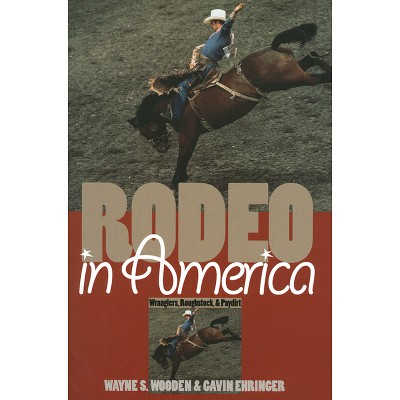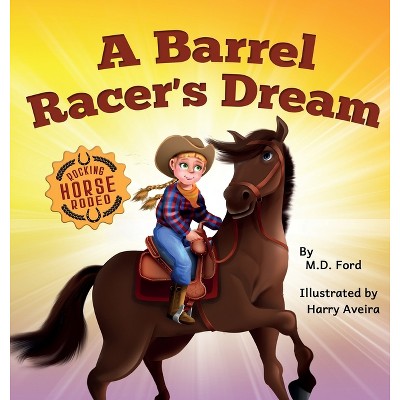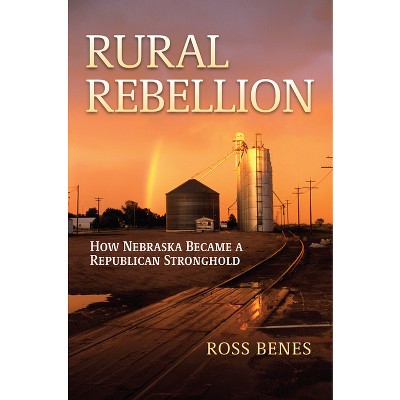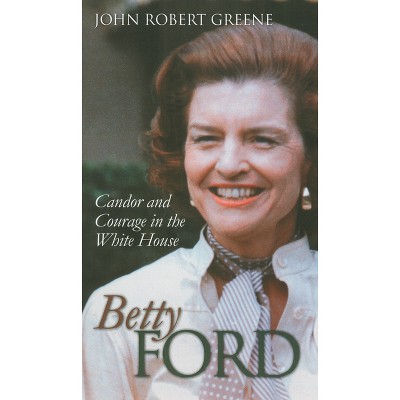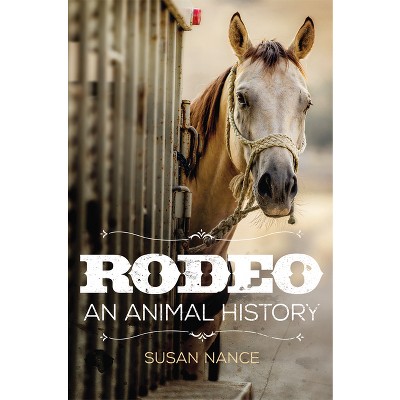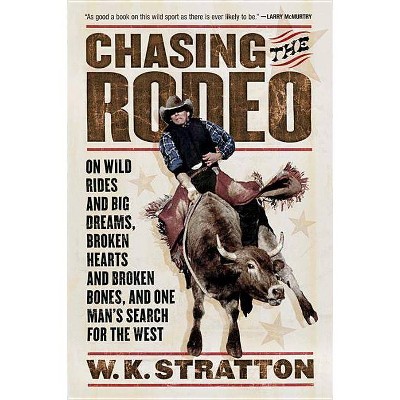Sponsored

Rodeo as Refuge, Rodeo as Rebellion - by Elyssa Ford (Paperback)
In Stock
Sponsored
About this item
Highlights
- From the Wild West shows of the nineteenth century to the popular movie Westerns of the twentieth century, one view of an idealized and mythical West has been promulgated.
- Author(s): Elyssa Ford
- 288 Pages
- Sports + Recreation, Rodeos
Description
About the Book
Rodeo as Refuge, Rodeo as Rebellion is the story of how the sport of rodeo allows race- and group-specific rodeos to maintain their distinctive presence, voice, and purpose into the twenty-first century.Book Synopsis
From the Wild West shows of the nineteenth century to the popular movie Westerns of the twentieth century, one view of an idealized and mythical West has been promulgated. Elyssa Ford suggests that we look beyond these cowboy clichés to complicate and enrich our picture of the American West. Rodeo as Refuge, Rodeo as Rebellion takes us from the beachfront rodeo arenas in Hawai'i to the reservation rodeos held by Native Americans to reveal how people largely missing from that stereotypical picture make rodeo--and America--their own. Because rodeo has such a hold on our historical and cultural imagination, it becomes an ideal arena for establishing historical and cultural relevance. By claiming a place in that arena, groups rarely included in our understanding of the West--African Americans, Native Americans, Mexican Americans, Native Hawaiians, and the LGBT+ community--emphasize their involvement in the American past and proclaim their right to an American identity today. In doing so, these groups change what Americans know about their history and themselves. In her journey through these race- and group-specific rodeos, Ford finds that some see rodeo as a form of escape, a refuge from a hostile outside world. For others, rodeo has become a site of rebellion, a place to proclaim their difference and to connect to a different story of America. Still others, like Mexican Americans and the LGBT+ community, look inward, using rodeo to coalesce and celebrate their own identities. In Ford's study of these historically marginalized groups, she also examines where women fit in race- and group-specific rodeos--and concludes that even within these groups, the traditional masculinity of the rodeo continues to be promoted. Female competitors may find refuge within alternate rodeos based on their race or sexuality, but they still face limitations due to their gender identity. Whether as refuge or rebellion, rodeos of difference emerge in this book as quintessentially American, remaking how we think about American history, culture, and identity.Review Quotes
"[Ford's] sensitivity to the overlapping and contradictory elements of identity, even as she makes a case for a widespread and shared affinity with the history of the American West, should recommend her study to a wide audience."--Journal of American History
"Thanks to Elyssa Ford's Rodeo as Refuge, Rodeo as Rebellion, we now see the West as it was in the Great Plains more clearly: populated by people of color with a firm sense of belonging to America regardless of demographic identity, and more populated by women and diverse sexuality than society has been taught."--Great Plains Quarterly
"Rodeo as Refuge's in-depth study of rodeo's complex history is one that deepens our understanding of diverse peoples of the West."--Pacific Historical Review
Ford's work is a masterclass in interdisciplinarity, as she blends western history and cultural history, all the while asking careful questions about race, colonialism, gender, sexuality, and power."--Journal of Arizona History
"Ford does her readers a major service in placing these diverse rodeo communities in conversation with one another, showing that rodeo is a place of identity performance with multiple meanings across space and time."--Choice
"In Rodeo as Refuge, Rodeo as Rebellion, Ford compellingly uses the rodeo to explore how lived experiences interact with mythic pasts to shape modern identities in diverse settings across North America. The theme of work and the roles of women in each rodeo are highlights in this appealing study."--Margaret Frisbee, associate professor of history, Metropolitan State University of Denver
"Rodeo as Refuge, Rodeo as Rebellion is an important addition to rodeo history, providing a welcome exploration of rodeo that falls outside the traditional white, masculine narrative. Well written and extensively researched, Elyssa Ford beautifully demonstrates the importance of the sport to diverse racial and outsider groups, deftly illustrating how the staging of rodeos 'for themselves and by themselves' provides important personal and community connection to their Western past."--Renee M. Laegreid, author of Riding Pretty: Rodeo Royalty in the American West
"This well-researched and elegantly written work delves into the overlooked diversity of the West, as both place and idea, and the complex relationship between rodeo and identity."--David Wolman, coauthor of Aloha Rodeo: Three Hawaiian Cowboys, the World's Greatest Rodeo, and a Hidden History of the American West
